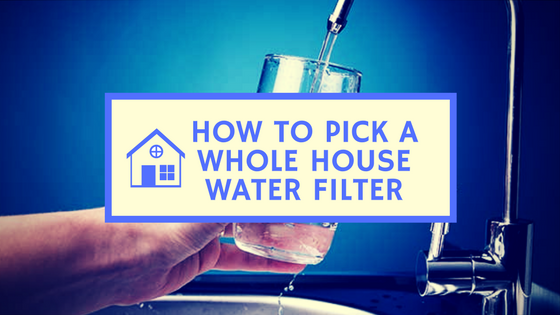Questions to Consider for Selection
We want to protect ourselves and our loved ones from the health risks associated with contaminants in our water supply. The lessons learned from Flint, Michigan have led many people in the Bay Area to start searching for the best water filter system for the entire home.
Water purification systems vary in what impurities and toxins are removed, and in overall performance. Whole house water filters make it possible for every drop of water entering the home to be purified so it is safer for drinking, cooking, washing, and bathing. If you are concerned about the safety of your water, it is important that you understand which whole house water filtration system will perform best. These important factors should be evaluated:
- What percentage of toxins, hard minerals, and particles the water purification systems will filter out and remove from the home’s water.
- What water capacity a whole house water filtration system can effectively handle.
- Will the whole house water filter system impact water pressure?
- Is the system NSF certified? NSF certification means the product you purchase meets public health and safety standards.
- Well water filtration systems need to be capable of filtering and softening water with a high mineral content, and removing particles and grit, as well as bacteria, parasites, and cysts such as cryptosporidium and giardia.
- All water filtration systems require maintenance, including installing replacement filters or tanks as the years pass. Review the installation procedure and the costs involved in replacement parts before deciding on a system so you know before you go.
Types of Water Filtration Systems
A variety of water filtration systems are available. These vary in what contaminants they remove, and how they function. The types include:
- Activated Carbon Filters: These systems remove large particles such as sediment and silt, and reduce odor and improve taste by reducing chlorine. Some systems also remove asbestos, lead, and mercury.
- Carbon Block: These systems contain activated carbon, pressed into blocks, which is much more effective than granulated carbon that allows water to pass through unfiltered.
- Reverse Osmosis: The water is pushed through a membrane that blocks any particles larger than a water molecule, and is more effective than carbon. Some systems include a carbon component to address a larger spectrum of contaminants.
- Ionizers: These filters use electrolysis to separate the water into two separate streams, one alkaline and one acidic.
- UV Filter Systems: Ultraviolet radiation is employed to destroy various bacteria that are known to be a health risk.
- Infrared Filter: Uses heat and light to soften water with a high mineral content.
How To Choose the Best System
You want your family to drink, cook, clean, and shower with pure water. With so many water filtration systems on the market, it can be difficult to identify the perfect system. Most people who have concerns about water purity are not experts in the water purification field; it is advised that you seek help from a knowledgeable source and get professional guidance. Systems are available that remove some or all the following impurities, with each system offering unique features:
- Chlorine
- Lead
- Heavy metals
- Fluoride
- Nitrates
- Bacteria
- Viruses
- Chemical Pollutants
- Minerals
Clean water means better health.
Flint is not the only area in the USA that provides municipalities with unsafe drinking water. In fact, 3,000 areas in the USA have now been identified as having even higher rates of lead poisoning than that community. Most city water systems were put in place in the distant past; lead pipes and solder were the standard for decades. If you are unsure whether your water supply is safe, it can be tested to identify the presence of contaminants, toxins, and metals.
To be on the safe side, it is wise to assume that your water supply is less than healthy. Even the cleanest water has added chlorine to disinfect water. Although chlorine is cheap and effective, it carries significant risks, and has been linked to the development of certain cancers. Buying bottled water does not completely resolve water safety; often bottled water comes directly from municipal water sources and has been treated with – you guessed it – chlorine.
Bay Area Water: How Safe is It?
As reported by NBC, a study has revealed that tens of thousands of Bay Area homes have water that contains Chromium 6 – the chemical substance brought into the public eye by environmental activist Erin Brockovich. The county water systems where the presence of Chromium 6 was identified include the following:
- Marin Municipal Water District
- North Marin Water District
- SFPUC City Distribution Division
- City of Daly City
- CA Water Service – San Mateo
- City of Redwood City
- CA Water Service – Bear Gulch
- East Bay MUD
- Alameda County Water District
- City of Hayward
- Dublin San Ramon Services District
Get Expert Guidance for Choosing the Best Whole Home Water Filtration System
Many homeowners in the Bay Area have great concerns about water safety. At Benjamin Franklin Plumbing Bay Area, our team is often involved in assisting home owners choose the most effective in-home system. Each home is unique in how the system must function to effectively purify the water supply, and each individual client comes to us with specific concerns. The range of water filtration systems vary in what contaminants are removed. Let our team assist you in finding the most effective in-home filtration system for your situation.



